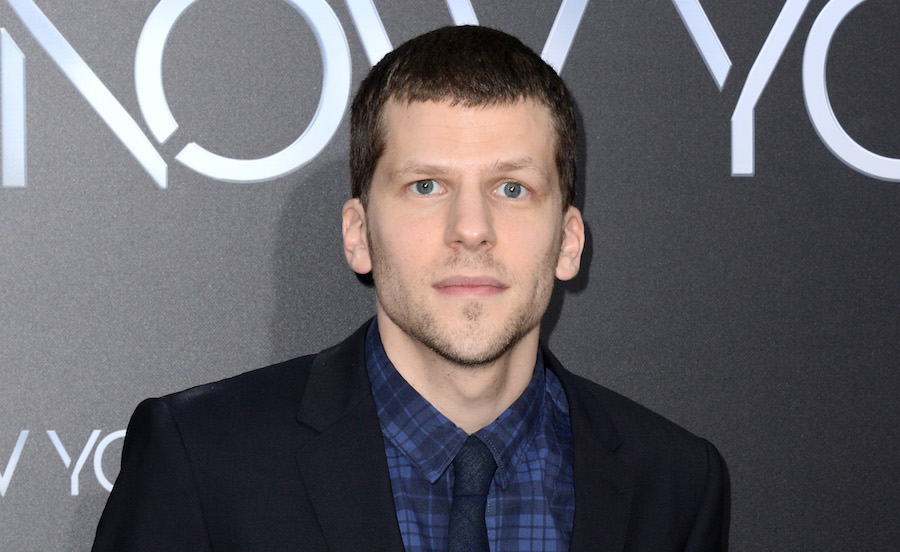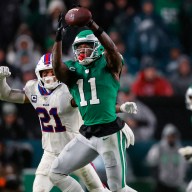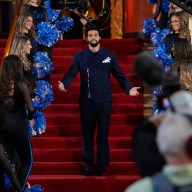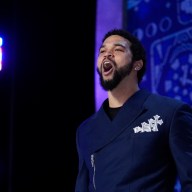When Jesse Eisenberg calls for our interview, he begins, “This is Jesse Eisenberg, from the movie.” That formality is so him — the movie star who doesn’t want to come off like a movie star. But it’s not fake-modesty; he seems truly sincere. The actor, 32, has found a filmmaker even more neurotic than himself. “Cafe Society” is Eisenberg’s second with Woody Allen, after 2012’s “To Rome with Love.” In Allen’s 47th movie, Eisenberg plays a young man in the 1930s who comes to Hollywood and winds up falling for a studio secretary played by Kristen Stewart — unaware that she’s sleeping with his movie mogul uncle (Steve Carell). RELATED: Interview: Kristen Stewart on “Cafe Society” and how to work with Woody Allen Like me, you grew up on Woody Allen movies. What was the one that turned you into a fan? The movie was “Sleeper,” but it was actually his album, “Stand-Up Comic.” Have you managed to find his obscure, almost impossible-to-see 1971 TV short “Men of Crisis: The Harvey Wallinger Story”? It’s on YouTube, but since you know Woody Allen I feel weird pointing out that you can watch it by not terribly legal means. That’s a strange perspective, but I get not wanting to go back to your previous work. How do you feel about watching your past films? This is your second film with him. He’s known for his brusque directing style, but I’m not sure how overstated that is. How collaborative is he with the actors? RELATED: Interview: Joe Berlinger on why he made a “feel-good” film about Tony Robbins Sometimes when an actor plays a male lead in a Woody Allen movie they’ll do a Woody Allen impersonation. You haven’t done that.
The first movie I saw that really hit me in a profound way was “Crimes and Misdemeanors.” I saw that somebody could make something that was funny and accessible and at the same time introspective, contemplative, thoughtful, intellectual and analytical without compromising any of those elements. What was yours?
No, I haven’t.
I don’t think he would care. He seems to have no interest in his mythology or reading about himself. He’s so productive, to the exclusion of all celebration of himself.
I never watch anything I’ve ever been in, even once. Most likely I’ll feel critical about it, but I’m also concerned about any kind of vanity it would provoke. I just don’t watch anything. It makes me too uncomfortable. I like to stay busy. I don’t like to revel in the celebration of previous things — which is a big part of the entertainment industry, of course.
He’s just uninterested in celebrating good moments on set. He’s very matter-of-fact. If something is going well, we do it once and go onto the next thing. If something is not going well he very practically steps in and alters it or gives a good piece of direction. I kind of like that, because I don’t feel the need to discuss anything at great length. I do a lot of that on my own beforehand. He expects that. He hires really wonderful, competent actors who he trusts.
He allows them to embody their characters in the way they see fit. Whenever there’s a quiet space in the scene, he likes to fill it with dialogue. If there’s nothing scripted he’ll ask the actors to improvise something. He always tells the actors before the scene to not feel hamstrung by the dialogue, to change it, to make it their own, to make it feel natural. On one hand, he’s somebody who’s incredibly specific, who has a tone and a style of writing that is very much his own. On the other hand, he’s probably more collaborative and open-minded than most people in his position.
My feeling was just to play the part as I would any other role. I was trying to view the character with emotion and depth, and emphasizing what is really naive about the character in the beginning of the movie, and what is world-weary about him in the second half. Woody Allen has said many times that if he played the role he would have played it as a comedic character. That’s not how I approach performing. And so my version is probably more dramatic. It might be less funny than his, but he says it has elements that he wouldn’t have brought to it. It feels strange to that, but that’s what he said.
Jesse Eisenberg on ‘Cafe Society’ and not impersonating Woody Allen

Getty Images
Follow Matt Prigge on Twitter @mattprigge


















